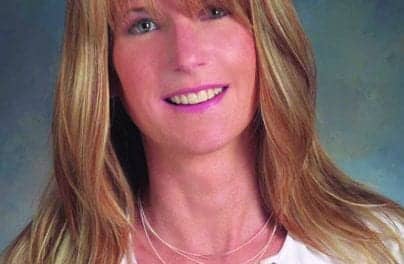
|
Tears of joy are not unusual at Illinois-based Hearing Health Center. They are a testament to the transformative power of improved hearing, and it’s a phenomenon that has kept Ronna Fisher, AuD, FAAA, coming back to the office for almost three decades.
Since founding Hearing Health Center in 1984, Fisher has pushed the boundaries in an effort to better serve patients. She dispensed hearing aids before the American Speech-Language-Hearing Association sanctioned it. After that, she became one of the first in the United States to fit completely in-the-canal hearing aids. Still later, she got a slap on the wrist from the Illinois Department of Public Health for telling patients about the negative social, economic, physical, and cognitive consequences of auditory deprivation—before research ultimately proved her right.
The drive to be first is fueled by the gratitude Fisher gets from patients that she and her team of audiologists have helped. “At least once a week, I receive a phone call or letter from patients or someone close to them,” says Fisher. “The daughter of an Alzheimer’s patient called to tell me her mother’s memory and depression improved immediately after getting hearing aids. Our entire staff celebrates daily the positive changes we make in people’s lives.”
Given the chance, these positive changes can literally transform families. Left unaddressed, hearing-related issues can corrode relationships—a process that Fisher has seen firsthand. “Hearing loss runs in my family,” says Fisher. “I grew up with a father who had difficulty hearing, and it affected the whole family, as well as relationships with his friends and clients. By the time I was a teenager, his hearing loss was significant. The doctors told him hearing aids would not help. I didn’t know at the time that hearing aids are the only treatment for 95% of patients. There is no other choice.”
Fisher’s father died without experiencing the benefits of improved hearing, but so many others at Illinois offices in Chicago, Naperville, Oak Brook, and Highland Park have benefitted from Fisher’s expertise. For Fisher, that positive patient experience starts from a basic realization that most patients are reluctant to acknowledge, let alone treat, their hearing loss.
“People procrastinate and try to ignore their hearing loss as long as possible,” she says. “So you want to make their experience unforgettable with unparalleled care. Make it a process they will never regret. We have a proven process for success with amplification. I also wrote a book to guide our patients through the first several months of their journey to better hearing.”
Cutting Through the Din
The Fisher Foundation for Hearing Healthcare—a unique not-for profit enterprise—was started by Fisher in 2005 to educate patients, physicians, and “everyone who will listen about unknown consequences of untreated hearing loss, as well as the wide-ranging benefits of hearing well.” It’s a vital mission, because many misconceptions persist.
Chief among these misconceptions is that hearing loss is an inconsequential part of aging. “Hearing is related to countless other physical and cognitive functions in your body,” says Fisher. “From a psychological standpoint, it affects relationships with family and friends. Relationships deteriorate.”
Fisher’s foundation has educated Midwesterners with the latest research, including studies that establish a possible connection between hearing loss and Alzheimer’s disease. “Cognitive functioning declines proportional to the amount of hearing loss you have,” she says. “A hearing test is as important as a blood pressure test. I spend a lot of time visiting doctors and health care facilities, and they are astounded to learn about these connections.”
Hearing Health Center is currently working with several prominent physicians to explore the link between hearing loss and diabetes. “We can no longer look at hearing loss in isolation,” adds Fisher. “It is connected to, and has a substantial impact on, other physical and cognitive health conditions—as well as all of the social, emotional, and financial ramifications of lack of treatment.”
The doctors at Hearing Health Center share Fisher’s passion for education and patient care as they treat various hearing-related conditions such as tinnitus and balance disorders. They do all this while keeping abreast of the latest technology in hearing instruments, and making sure their patients are aware of the best options for their individual needs.
It’s a comprehensive mission that starts with education for every person who walks through the door. As Fisher explains, “We are all so proactive about our health. We check our blood pressure and our cholesterol regularly. We get our eyes checked. Yet most of us have not had our hearing checked since grammar school. People need to get baseline hearing checkups as adults. Most do not know what they are not hearing, and they don’t understand the health-related and other risks they are taking.
“Getting a hearing exam is no longer an elective procedure,” adds Fisher. “In my opinion, it is a medical necessity!”
Ronna Fisher, AuD, FAAA
Hearing Health Center
142 E Ontario
Chicago, IL 60611
(312) 263-7171
hearinghealthcenter.com





